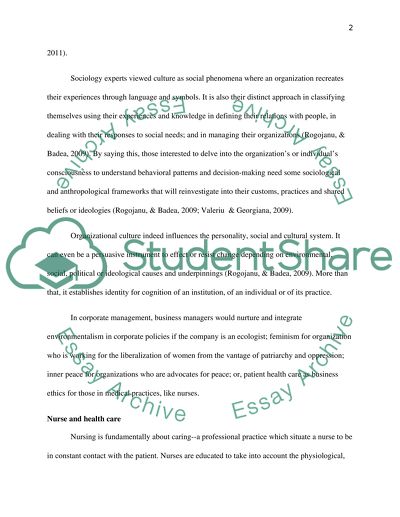Cite this document
(“Nursing assigment: Organizational culture; Nurse and health care; Essay”, n.d.)
Retrieved de https://studentshare.org/nursing/1390877-nursing-assigment-organizational-culture-nurse-and-health-care-leadership-and-culture
Retrieved de https://studentshare.org/nursing/1390877-nursing-assigment-organizational-culture-nurse-and-health-care-leadership-and-culture
(Nursing Assigment: Organizational Culture; Nurse and Health Care; Essay)
https://studentshare.org/nursing/1390877-nursing-assigment-organizational-culture-nurse-and-health-care-leadership-and-culture.
https://studentshare.org/nursing/1390877-nursing-assigment-organizational-culture-nurse-and-health-care-leadership-and-culture.
“Nursing Assigment: Organizational Culture; Nurse and Health Care; Essay”, n.d. https://studentshare.org/nursing/1390877-nursing-assigment-organizational-culture-nurse-and-health-care-leadership-and-culture.


